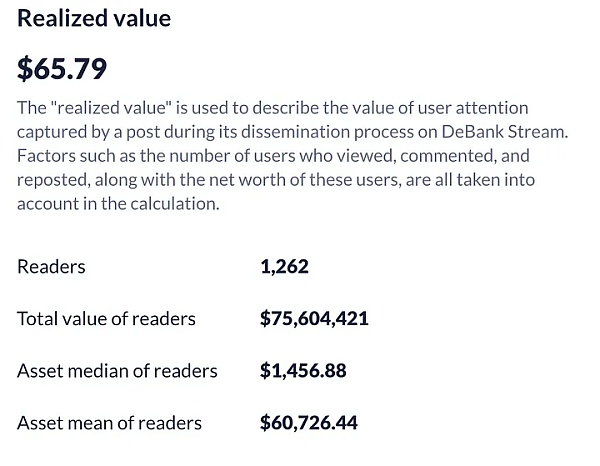Original author: Crypto researcher Ann
Original compilation: Baize Research Institute
Recently, Friend.Tech on the Base chain exploded, causing controversy among users. However, theres no denying that its popularity has helped raise awareness of SocialFi. On-chain social platforms are often touted as an important area for the crypto industry to attract wider public attention. After all, blockchain technology isn’t just about finance. There are several projects that have been building in this space, but I dont think many people know about them, even in the crypto community.
Why is decentralized social media needed?
Before introducing several on-chain social protocols, it is important to understand why we need to build social media on the blockchain. Thanks to whats happened to Twitter (or X) in recent years, you probably already have the answer in mind:
Not censorable. You cant trust Elon Musk to protect free speech.
You retain ownership of your account. Prevent people like Elon Musk from stealing your Twitter account.
Adjustable incentives. Social media treats users more like products. The company uses the users attention to serve ads, the company makes money, and the user gets nothing. We get almost nothing of value in return for the attention we pay. This must be changed.
Because traditional social media doesnt allow us to trade KOLs (lol, just kidding.)
1. DeBank Hi and DeBank Stream
Long before friend.tech gave users the ability to get paid through Fan Pay, DeBank had offered something similar through DeBank Hi.
As shown above, you can set a price for fans to chat with you privately.
In the DeFi field, DeBank has become a wallet tracking platform commonly used by investors.
They have added two important social features in the past year: DeBank Hi and DeBank Stream.
After reading DeBank Hi’s white paper, I am not opposed to trading money for attention. For celebrities and busy KOLs, private messaging can actually be a nuisance. DeBank Hi has put in place a paywall that not only adds value to their time, but also blocks those with bad intentions who like to bother and spam. (This is something I experienced firsthand in a Twitter DM.)
DeBank Stream
At the same time, the DeBank team also built a Twitter alternative, DeBank Stream.
One of the most fascinating things about the image above is the $ that appears on each post. For example, in the post in the picture below, the realized value is $52.29.

Realized Value is a reward assigned to everyone who engages with the post (likes and comments), usually funded by the poster or sponsors.
DeBank Stream is full of features and fun — you can decorate your profile with NFT badges, for example — and it puts friend.tech to shame in comparison. I feel that DeBank Stream is completely ahead of other Web3 social platforms in terms of functionality.
There are even rewards for participating in governance activities (voting), so you should definitely give this project a try. (However, you need to have at least $100 worth of assets in your wallet. The platform is witch-proof.)
There is another reason why DeBank should be used early: possible airdrops! They hinted at this a while ago with their Debank Chain announcement.
2. Farcaster
Farcaster calls itself a protocol for decentralized applications, a bit like the Lens Protocol. By the way, Ethereum co-founder Vitalik is already using this platform.
Since it is a protocol, many applications can be built on top of it. (Put simply, this protocol is like a blockchain.)
Disappointingly, however, this protocol is not yet available to the public. You can email the developer and ask them to give you access.
I was even directed to the waitlist page for Discover, the Twitter alternative developed by Farcaster.
It’s clear that DeBank is way ahead of the curve when it comes to accessibility. All you need is a wallet address to get started. (Though it’s unclear whether DeBank Stream is actually using blockchain technology to store people’s information and data, rather than centralized servers.)
Farcaster made me appreciate Friend.Tech even more for accessibility reasons.
Some VCs will complain like the tweet below.
Image translation: Talking to the builders of consumer crypto platforms, they are all frustrated that the only way to develop currently seems to be to lean towards speculation, or to essentially build a casino...
But now we can see the answer to people flocking to platforms like Friend.Tech, and that is because these VC-funded Web3 social platforms are simply not ready for public use, are gated, exclusive, and not open to everyone.
3. Blockscan of Etherscan
While Blockscan, the chat Dapp developed by the Etherscan team, may have the least features of the three platforms, it is the only DApp that works well and has the lowest barrier to entry. All you need is at least 1 transaction done on the Ethereum mainnet and you can send him a message via Vitaliks ENS Vitalik.eth.
Note: Blockscan functions similarly to Openchat on the IC blockchain, but the latter is completely decentralized.
Meanwhile, Blockscan is also an App on Android and iOS.
One thing to note about Blockscan is that it is not a completely decentralized platform. As they explain on their FAQ page, Sending and receiving messages is free because they are done off-chain. Their goals are obviously not very high - which honestly doesnt matter, since people only need one Temporarily available Web3 applications.
Conclusion
Many crypto enthusiasts fall into the “perfectionism trap” when thinking about decentralized social. We would ask for something consistent with cryptographic values, and such applications would often have tradeoffs in user experience or accessibility.
Comparing the above three DApps, plus Friend.Tech and Lens Protocol, we can draw some conclusions about the current situation of Web3 social networking.
Platforms such as Friend.Tech and DeBank Stream already have a large number of users, and although they have questionable decentralization aspects, they are currently available to the public.
On the other hand, protocols like Farcaster and Lens strive to be completely decentralized, but currently not everyone can easily join and use them. Judging from their current web design, the user experience is not very simple.
which one do you like more?
risk warning:
According to the Notice on Further Preventing and Dealing with the Risk of Hype in Virtual Currency Transactions issued by the central bank and other departments, the content of this article is only for information sharing, and does not promote or endorse any operation and investment behavior. Participate in any illegal financial practice.










